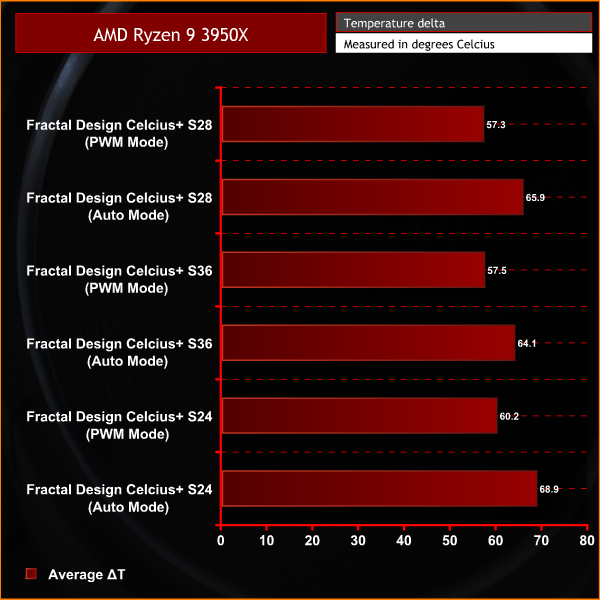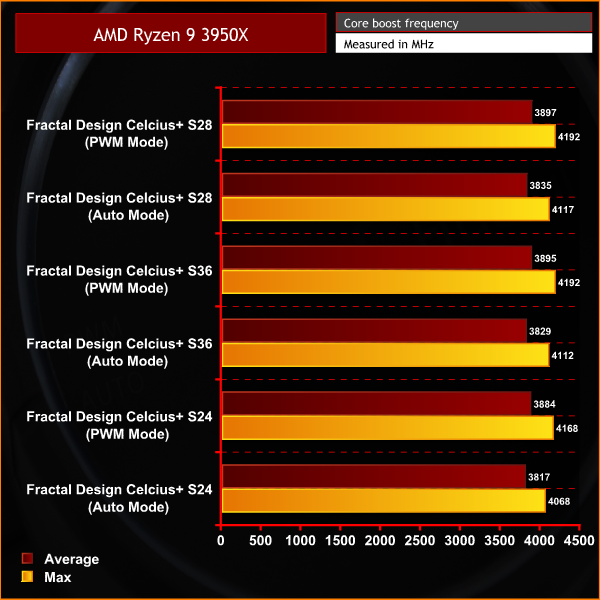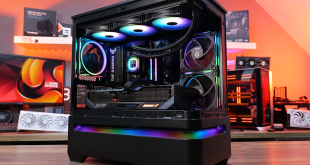Thermal Performance: AMD Ryzen 3950X
Since we have three AIO coolers from the same series but with a combination of different radiator and fan sizes, we took the opportunity to do some back to back testing on an AMD Ryzen 3950X platform, to compare the thermal performance with the coolers in their PWM and Auto modes.
For both the PWM and Auto mode tests, we set the Asus ROG Strix X570-E motherboard to allow the AMD Ryzen 3950X to run at stock settings and measured the coolers thermal performance in both modes. We then ran AIDA64 stressing CPU FPU and Cache for 40 minutes and recorded the results in the chart below. With this data we can also compare how thermal performance affects CPU core boost frequency.
The temperatures presented in the graphs will be average Delta temperatures measured over the length of the test. We calculate the Delta temperature by deducting the ambient temperature in the test room from the measured CPU temperature under load.
During the PWM mode test, the coolers fans/pump were set to the standard fan profile in the Asus motherboard BIOS to provide a fair balance between thermal performance and fan noise levels. During the Auto mode test, the coolers built-in firmware takes over fan/pump speed control and is designed to keep the pump noise level lower than the noise from the fans.
Test Rig:
- CPU – AMD Ryzen 9 3950X
- Motherboard – Asus ROG Strix X570-E gaming
- Memory – 32 GB (4 x 8 GB modules) G.Skill Trident Z RGB DDR4-3200 MHz C16
- Graphics card – Gigabyte RTX 2070 Super Gaming OC 8G
- SSD – 500 GB Corsair MP600 PCIe Gen 4 M.2 NVMe
- Power Supply – Seasonic Prime PX-850
With the information gathered, we can clearly see that the thermal performance is at its best with the coolers set to PWM mode. All three coolers recorded considerably lower average core temperature with the PWM mode selected.
Again with the coolers in PWM mode, we can see that both the average and maximum core frequency boosts higher with the coolers running in this mode, so not only does the PWM mode provide the best CPU temperature, it also boost CPU performance.
 KitGuru KitGuru.net – Tech News | Hardware News | Hardware Reviews | IOS | Mobile | Gaming | Graphics Cards
KitGuru KitGuru.net – Tech News | Hardware News | Hardware Reviews | IOS | Mobile | Gaming | Graphics Cards




